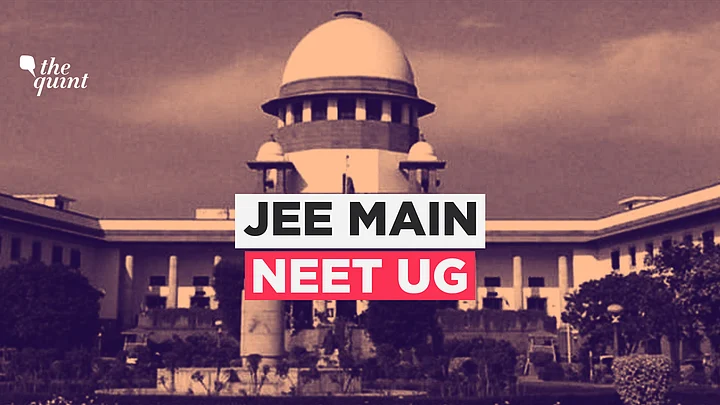The Supreme Court on Friday, 4 September, is hearing a review petition filed by six Opposition-ruled states requesting the apex court to reconsider and revisit its earlier judgment, in which it had dismissed a petition calling for the postponement of JEE Main and NEET UG.
Interestingly, the court is hearing the matter on a day, when JEE Main, which is already underway across two shifts from 1 September, will have entered its fourth day. NEET UG is scheduled on 13 September.
A three-judge bench comprising Justices Ashok Bhushan, BR Gavai and Krishna Murari has taken up the review petition in chambers, meaning that there will be no open court hearings or arguments by the lawyers for the petitioners.
Justice Bhushan takes the place of Justice Arun Mishra on the bench following the latter’s retirement on 2 September.
Which states had filed the petition?
On 28 August, six Opposition-ruled states including Punjab, West Bengal, Maharashtra, Rajasthan, Chhattisgarh and Jharkhand had filed the review petition in the apex court challenging the conduct of these two entrance exams.
The petition filed before the Supreme Court seeks a review of its earlier judgment dated 17 August, in which a three-judge bench had dismissed a similar petition asking for the postponement of JEE Main and NEET UG exams.
What are the grounds for the review petition?
- Petitioners say the conduct of JEE Main and NEET UG for over 25 lakh students across 4,500 test centres involve large movement of students and will ‘completely defeat’ the principles of social distancing being used to fight COVID-19.
- Arguing that India has seen the highest number of COVID-19 cases and death in last two months, petitioners say that exams were postponed when cases were less but are now being scheduled when cases are peaking.
- Conducting exams now would pose serious health hazards for the numerous students and persons suffering from underlying health conditions such as asthma and diabetes.
- Petitioners argue that exam guidelines issued by the government ignore the chances of students contracting the virus during their commute and thereby acting as vectors.
- Since a large number of JEE, NEET candidates come from non-metro, semi-urban, Tier-II, Tier-III and rural areas, they would be at a disadvantage when compared to students from urban areas and could be forced to undertake unsafe modes of transportation during the pandemic.
(At The Quint, we question everything. Play an active role in shaping our journalism by becoming a member today.)
